Labasa, located on the island of Vanua Levu in Fiji, offers a unique experience far from the bustling tourist centers of Viti Levu. It’s a region known for its diverse culture, stunning natural landscapes, and rich history. Whether you’re visiting for its charming countryside or to explore local traditions, Labasa has much to offer. Here’s everything you need to know about this fascinating destination.
Key Facts About Labasa
| Attribute | Details |
|---|---|
| Official Language | Fijian, English, Hindi |
| Population | Approximately 30,000 (as of 2021) |
| Area | 1,040 square kilometers |
| Country | Fiji |
| Continent | Oceania |
| Local Time | Fiji Standard Time (FST) – UTC +12 |
| Currency | Fijian Dollar (FJD) |
| Plug Type | Type I (Australian-style three-pronged) |
| Average Annual Temperature | 26°C (79°F) |
| Climate | Tropical climate, humid with distinct wet and dry seasons |
| Vegetation | Tropical rainforests, mangroves, and coastal vegetation |
| Main Industries | Sugarcane farming, agriculture, and tourism |
| Country Code | +679 |
| City Phone Code | +679 8XX XXXX |
Must-See Attractions in Labasa
Labasa may not be as touristy as the main cities in Fiji, but it’s home to several beautiful spots that deserve attention. From lush landscapes to fascinating local attractions, here are some of the best places to visit:
- Labasa Sugar Mill: One of the largest in Fiji, it offers a glimpse into the region’s rich sugarcane history.
- Nabou Green Park: A tranquil park perfect for picnics, walking trails, and nature photography.
- Korotogo Beach: A scenic, less-crowded beach for sunbathing and swimming.
How to Get to Labasa
Labasa is accessible by both air and sea, though it remains a quiet, secluded town. Here’s how you can reach it:
- By Air: The Labasa Airport (also known as the Vanua Levu Airport) offers domestic flights from Nadi and Suva, making air travel the most efficient method to get there.
- By Sea: You can also reach Labasa via a ferry from the capital, Suva, though this is a slower option.
Best Transportation Tips
- Public Transport: Minivans and buses are the primary public transportation options, providing affordable travel throughout the region.
- Car Rental: Renting a car is highly recommended for exploring Labasa and its surroundings at your own pace.
- Taxis: Local taxis are available but make sure to agree on a fare beforehand.
Where to Stay in Labasa
Labasa offers a variety of accommodation options, from budget guesthouses to more luxurious stays. Here are some recommendations:
- Budget-Friendly:
- Labasa Lodge (Approx. $30-50/night): Basic amenities, a convenient location near the town center.
- Luxury Stay:
- The Labasa Resort (Approx. $120-150/night): Offers beautiful views, excellent service, and a pool.
Dining & Best Restaurants
Labasa offers a wide range of dining options, showcasing the fusion of Fijian, Indian, and Pacific flavors. Some of the best eateries include:
- Daku Resort: Known for fresh seafood and tropical fruits, perfect for a relaxing lunch.
- Labasa Market: Offers a wide selection of local snacks and dishes, including Fiji’s signature curry and roti.
History of Labasa
Labasa’s history dates back to the early 19th century when it was a prominent settlement for sugarcane production. The town grew rapidly after the establishment of the sugar mill in the early 1900s, which remains an integral part of its economy today. Visitors can learn about Labasa’s history through local museums, the sugar mill tour, and by exploring the region’s villages.
Local Villages & Neighborhoods
Labasa is surrounded by several charming neighborhoods and villages, each offering unique insights into local Fijian culture:
- Nabou Village: Known for its traditional Fijian huts and cultural ceremonies.
- Buca Bay: A picturesque village near Labasa, perfect for quiet walks and beach visits.
Geographic Features of Labasa
Labasa is blessed with stunning geographic features, ideal for nature lovers and outdoor enthusiasts:
- The Labasa River: A tranquil river ideal for kayaking or scenic walks along its banks.
- Mt. Korobaba: A moderate hiking spot offering panoramic views of Labasa and the surrounding areas.
Famous People from Labasa
Labasa is home to several notable figures, including:
- Mahendra Chaudhry: Fiji’s former Prime Minister, known for his contribution to Fiji’s political landscape.
- Pio Tuwai: A renowned Fijian rugby player from Labasa who played for Fiji’s national team.
Neighboring Cities and Countries
Labasa is situated on Vanua Levu, Fiji’s second-largest island. Neighboring cities include:
- Savusavu: Another beautiful Fijian town on the coast of Vanua Levu.
- Suva: The capital of Fiji, located on Viti Levu, accessible by ferry.
Insider Tips for Visitors
- Embrace Local Culture: Don’t miss the chance to visit local villages and participate in traditional Fijian ceremonies.
- Pack for the Weather: The tropical climate can be humid and rainy, so pack accordingly, especially during the wet season (November to April).
Frequently Asked Questions (FAQ)
- What is the best time to visit Labasa?
The best time to visit is during the dry season, from May to October, when the weather is cooler and drier. - Is Labasa a safe place for tourists?
Yes, Labasa is generally safe, but like any destination, exercise caution, especially at night. - What currency is used in Labasa?
The Fijian Dollar (FJD) is used throughout the region. - Are there any nearby beaches?
Yes, Korotogo Beach is a quiet, beautiful spot near Labasa. - How do I get around Labasa?
You can use public buses, rent a car, or hire a taxi.
Outdoor Activities in Labasa
Labasa offers a variety of outdoor activities for nature lovers and adventure seekers. From hikes through lush forests to exploring pristine beaches, the region provides numerous opportunities to connect with nature:
- Hiking in Korobaba Mountain: A great activity for outdoor enthusiasts, offering panoramic views of Labasa and the surrounding areas.
- Kayaking on the Labasa River: Explore the tranquil waters of the Labasa River, surrounded by lush vegetation and the occasional birdwatching opportunities.
- Fishing at Buca Bay: A serene spot for fishing, where visitors can try their luck or just enjoy the peaceful environment.
Labasa’s Cultural Heritage
Labasa is known for its cultural diversity, with a mix of Fijian, Indo-Fijian, and European influences. The region’s rich history is reflected in its customs, music, festivals, and everyday life. Visitors will find vibrant markets, traditional Fijian ceremonies, and welcoming locals who are eager to share their heritage:
- Fijian Cultural Performances: Experience traditional Fijian music, dance, and the famous meke (traditional dance) during local festivals.
- Indo-Fijian Cuisine: Labasa’s Indian community plays an important role in the region’s cuisine. Visitors can enjoy flavorful curries, roti, and sweets at local eateries.
- Festivals: The town celebrates a number of cultural festivals, including Diwali and Fijian national holidays, where visitors can experience the region’s traditions firsthand.
Shopping in Labasa
If you’re looking to bring home a souvenir or local product, Labasa has a few places to explore:
- Labasa Market: A bustling market where you can find local produce, handmade goods, and traditional crafts. It’s also a great spot for trying fresh tropical fruits like papaya, mango, and pineapples.
- Handicraft Shops: Look out for shops selling Fijian handicrafts like wood carvings, woven baskets, and jewelry made from local materials.
Labasa’s Natural Wonders
Labasa is surrounded by stunning natural beauty that attracts visitors seeking relaxation or adventure. The area is rich in biodiversity, from tropical rainforests to expansive coastlines:
- Savusavu Bay: A beautiful bay just a short distance from Labasa, perfect for swimming, boating, and enjoying the surrounding natural beauty.
- Waisali Rainforest Reserve: This untouched rainforest offers guided tours where visitors can learn about native species and take part in eco-friendly activities like birdwatching and hiking.
- Buca Bay: Known for its calm, clear waters, Buca Bay is a peaceful retreat perfect for swimming and snorkeling.
Safety Tips for Visiting Labasa
While Labasa is generally a safe destination for travelers, it’s always good to take precautions to ensure a smooth visit:
- Keep Valuables Safe: As in any other destination, it’s advisable to keep your valuables, such as your passport and camera, safe and avoid carrying too much cash.
- Respect Local Customs: Labasa is a community that holds its cultural values dear. Always be mindful of local traditions, especially in villages, and seek permission before taking photographs of people or ceremonies.
- Weather Awareness: Labasa’s tropical climate can lead to sudden showers, particularly during the wet season. Carry an umbrella or raincoat, and check weather forecasts before outdoor activities.
Labasa’s Hidden Gems
If you’re willing to venture off the beaten path, Labasa has some hidden gems waiting for you. These spots are not only scenic but also relatively undiscovered by most tourists, giving you a unique experience:
- Korotogo Beach: A peaceful beach offering soft sand and crystal-clear water, perfect for a quiet day away from the crowds.
- Wailevu River: A secluded spot where you can take a boat ride through the mangrove forests, providing a tranquil and natural experience.
- Lomaloma Village: This remote village offers traditional Fijian experiences with friendly locals who are eager to share their customs and lifestyle.
Conclusion
Labasa is a hidden gem in Fiji, offering a unique blend of natural beauty, cultural heritage, and outdoor adventures. Whether you’re exploring its rich history, relaxing by the beach, or hiking through lush forests, this town provides an authentic Fijian experience. While not as touristy as other parts of Fiji, Labasa is perfect for those seeking an off-the-beaten-path destination. Make sure to visit this charming town and embrace its laid-back lifestyle.
Frequently Asked Questions (FAQ)
- What is the best time to visit Labasa?
The best time to visit is during the dry season, from May to October, when the weather is cooler and drier. - Is Labasa safe for tourists?
Yes, Labasa is considered safe for tourists. However, as with any destination, it’s always good to be mindful of your surroundings. - What is the main currency used in Labasa?
The Fijian Dollar (FJD) is the main currency used in Labasa. - How do I get from Suva to Labasa?
You can travel from Suva to Labasa by ferry, which takes approximately 4-6 hours, or by flight, which is a quicker but more expensive option. - What are the best outdoor activities in Labasa?
Hiking in Korobaba Mountain, kayaking on the Labasa River, and visiting Buca Bay for fishing are some of the best outdoor activities in the area. - What is the weather like in Labasa?
Labasa experiences a tropical climate with hot, humid weather year-round, with a wetter season from November to April.

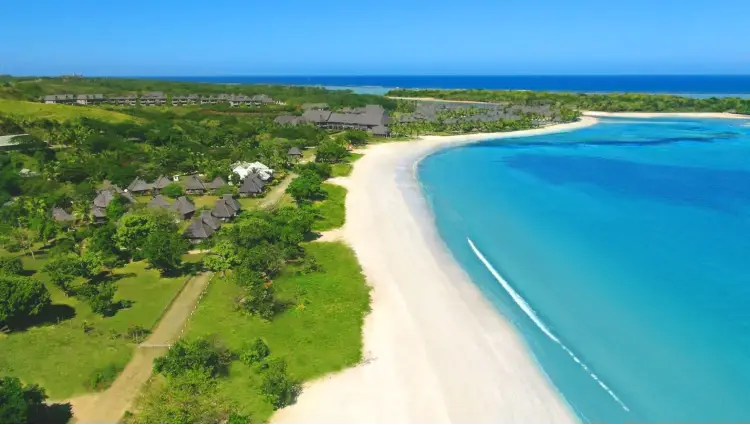
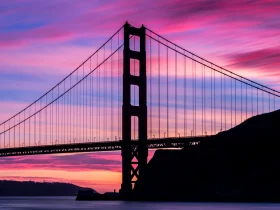

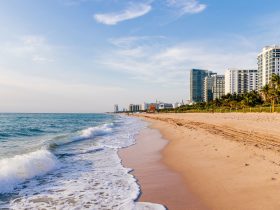
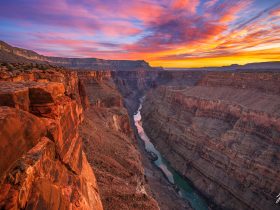
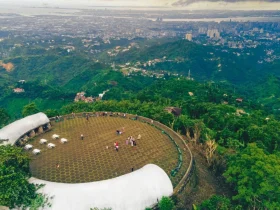
Leave a Review